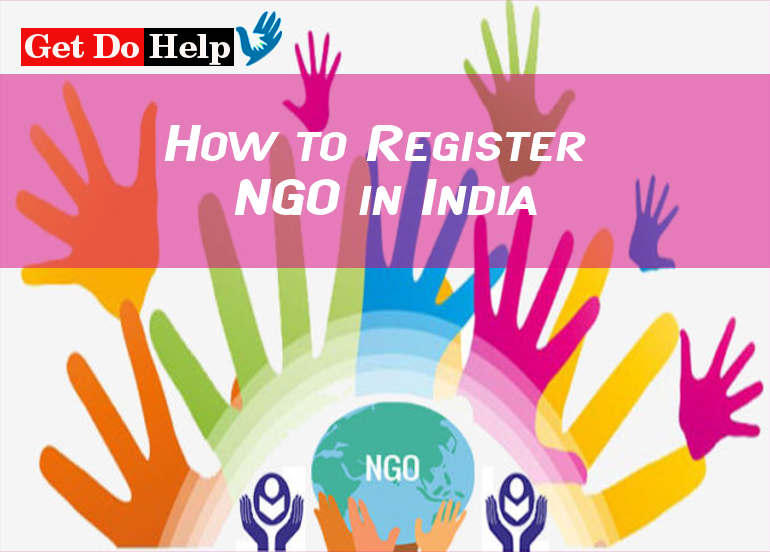


May 05, 2019 3041
NGO stands for Non-Government Organization. It’s called Non-Profit Organization also. As the name Non-Government Organization suggests they are operated by citizens on voluntary initiatives without any kind of interference from central or state governments. It requires hard work, determination and a genuine desire to support others. To start and run an NGO is an almost similar process to run a company but here you have to keep transparency. Moreover, here you have to work for the welfare of the society without expecting any profit.
To start a NGO, first you need to decide the vision or mission. It could be anything like Women’s Right, Children’s Welfare, Saving the Environment, Literacy, Old age welfare, etc.
In India, NGO can be registered as --
Key elements for NGO Registration
If you are planning for NGO registration, there are certain crucial decisions that are required to be finalized beforehand. As these key factors are required to be finalized and implemented through registration procedure. These key factors include:
Following documents will include by-laws in case of different business models;
The following documents are required for the registration of the NGO:
Procedure for registration under Indian Trust Act 1882
Buy a Coffee for Needy People and Support Get Do Help
Procedure for registration under Societies Registration Act, 1860
If you are planning for registering a NGO in the form of a Society, you are required to follow following simple steps:
Procedure for registration under Section 8 Company Act, 2013
If you are planning for registering a NGO in the form of a Section 8 Company Act, 2013 then there are certain additional formalities that are required to be met with. Following steps are involved in the form of a Section 8 Company:
Registration of the NGO is not necessary if you just want to do social work. Though, if you want funds for the social work it becomes essential to register the NGO.
Comparison among Trust, Society and Non Profit Company
|
Trust |
Society |
Section 8 Company |
|
|---|---|---|---|
|
Statute/Legislation |
Relevant State Trust Act |
Societies Registration Act,1860 |
Indian Companies Act, 2013 |
|
Jurisdiction |
Deputy Registrar / Charity Commissioner |
Registrar of Societies |
Registrar of Companies |
|
Registration |
As trust |
As Society in Maharashtra, both as society and as a trust |
Under section 8 of Indian Company Act |
|
Registration Document |
Trust Deed |
Memorandum of Association and rules & regulations |
Memorandum of Articles of association and regulations |
|
Stamp Duty |
Trust deed to be executed on non-judicial stamp paper, vary from state to state |
No Stamp Paper required for MOA and rules & regulations |
No Stamp Paper required for MOA |
|
Required members |
Minimum two trustees, no upper limit |
Minimum seven managing committee members, no upper limit |
Minimum three members, no upper limit |
|
Board of Management |
Trustee / Board of Trustee |
Governing body or council / managing or executive committee |
Board of Directors / Managing Committee |
|
Mode of succession on Board of Management |
Appointment or Election |
Appointment or Election by members of the general body |
Election by members of the general body |
The basic aim of an NGO should be to provide social, educational and economic strength and to identify the needy people so that help should reach to them. NGOs play a critical part in developing society, improving communities, and promoting citizen participation. NGO also fights against exploitation, injustice and corruption if found against any individual, class, community in the society.
Buy a Coffee for Needy People and Support Get Do Help
Related Keywords : how to register ngo in india, how to register non governmental organization in india, how to start a ngo in india, how to start an ngo in india, ngo registration in india, ngo registration process in india, non governmental organization registration process in india, get do help, help needy people in india, help poor people in india, suraj anjaana